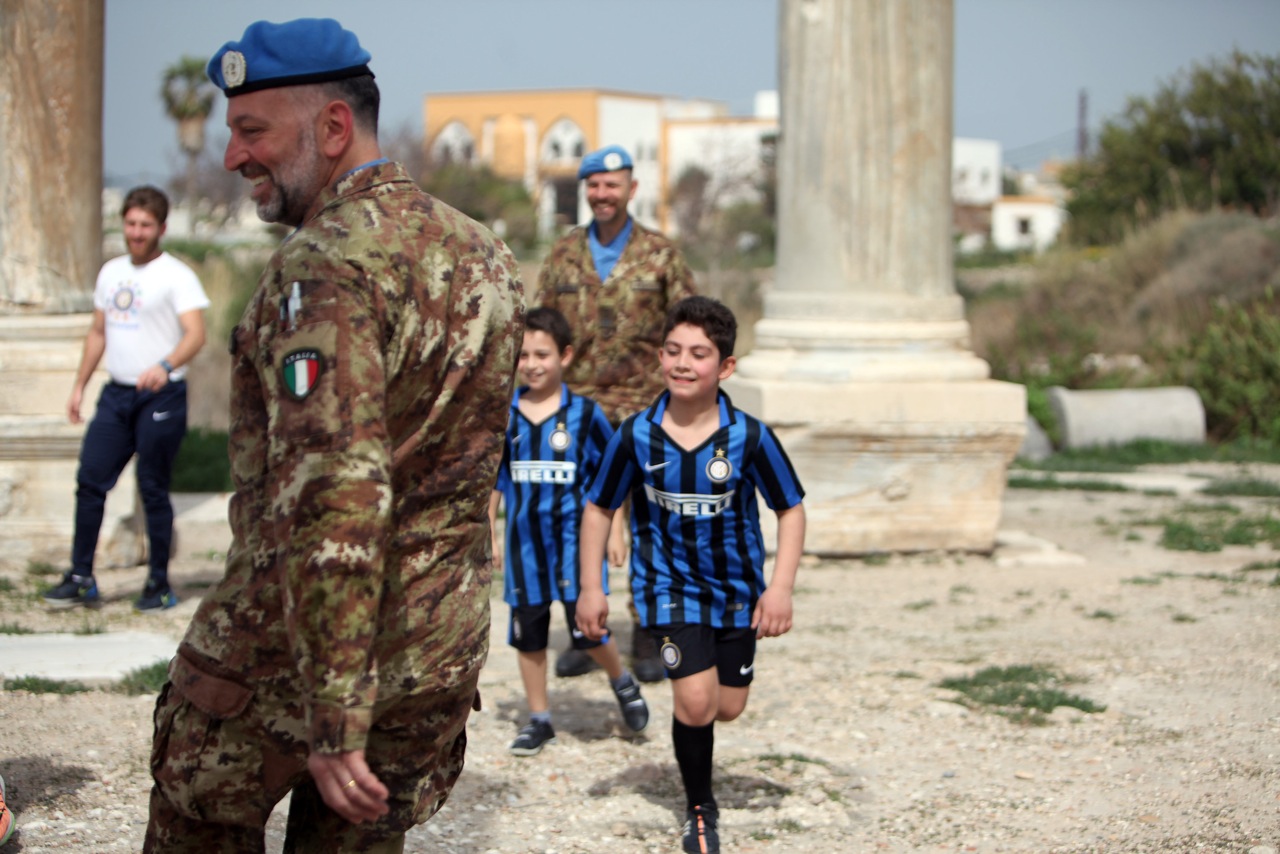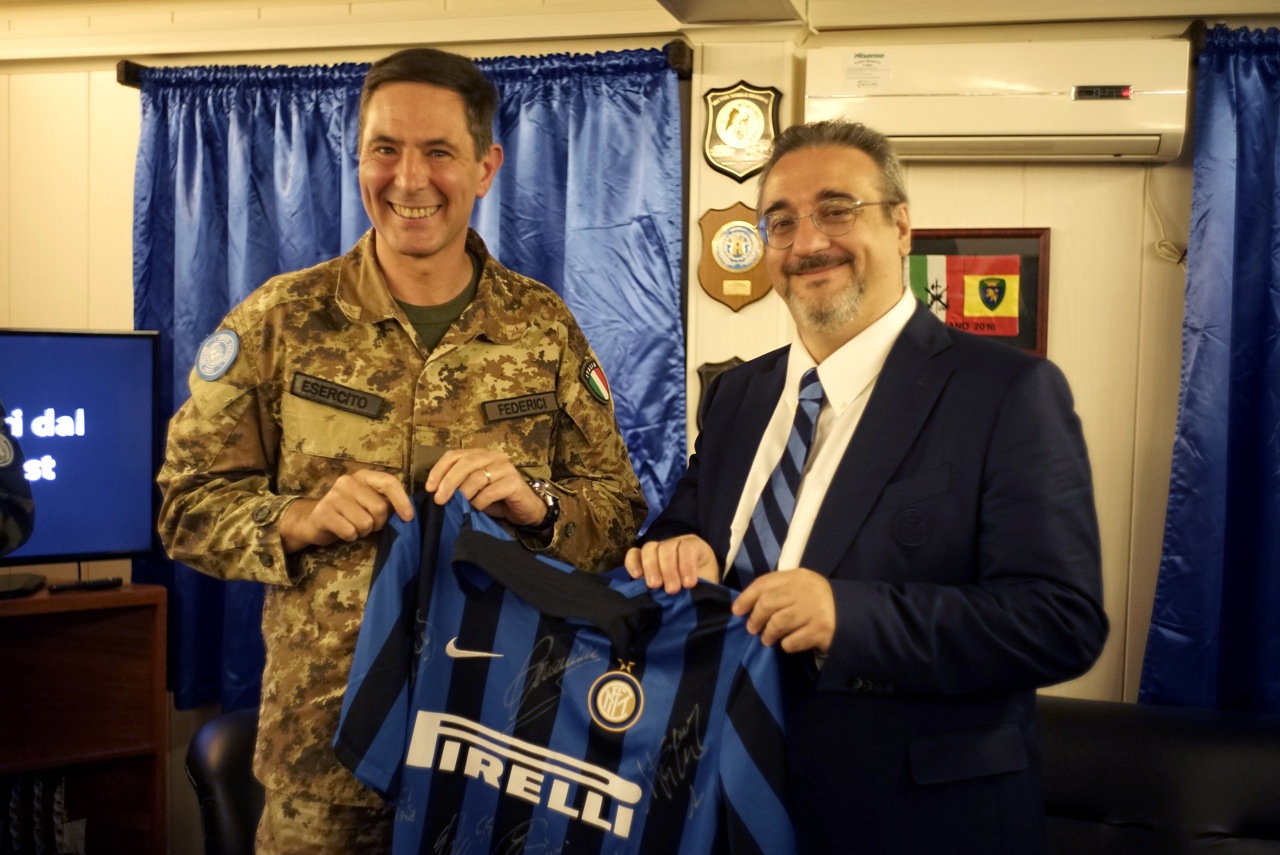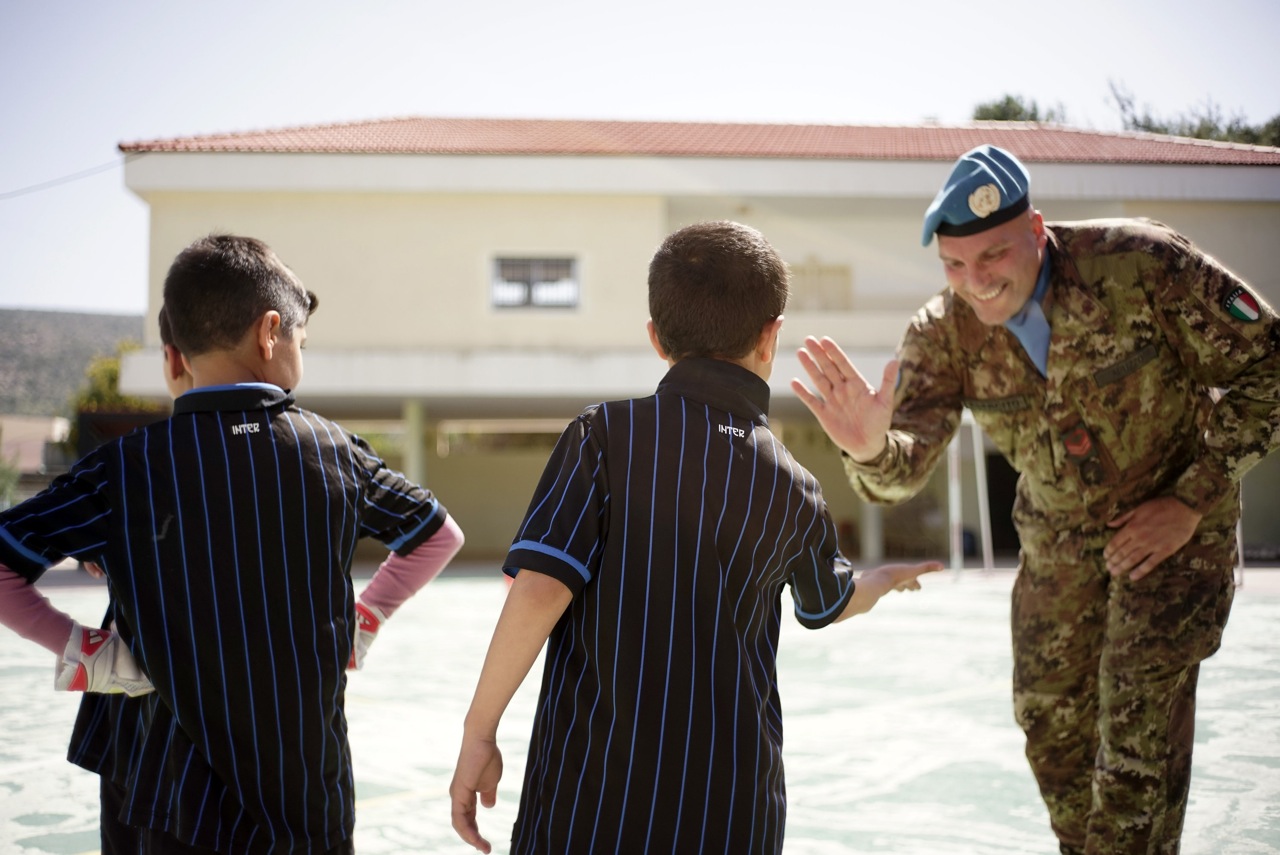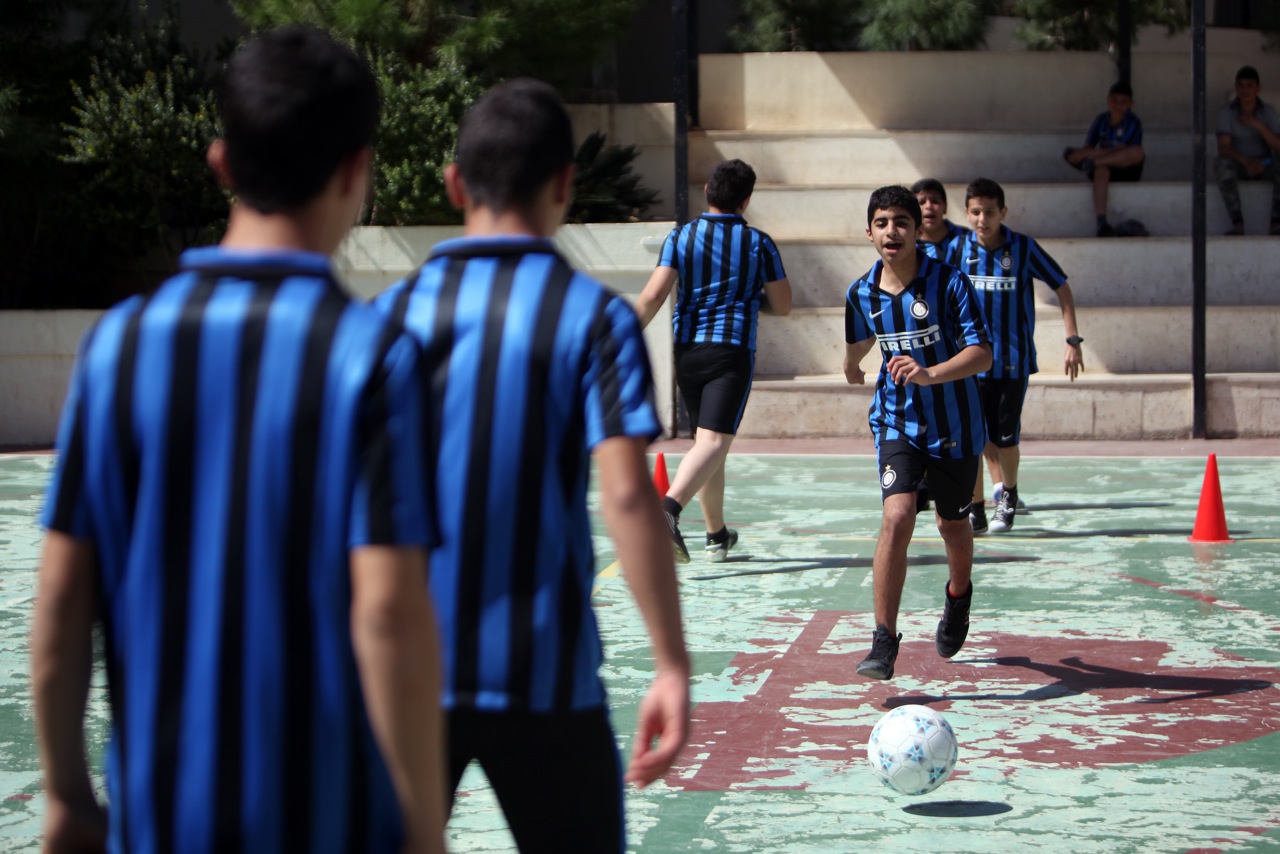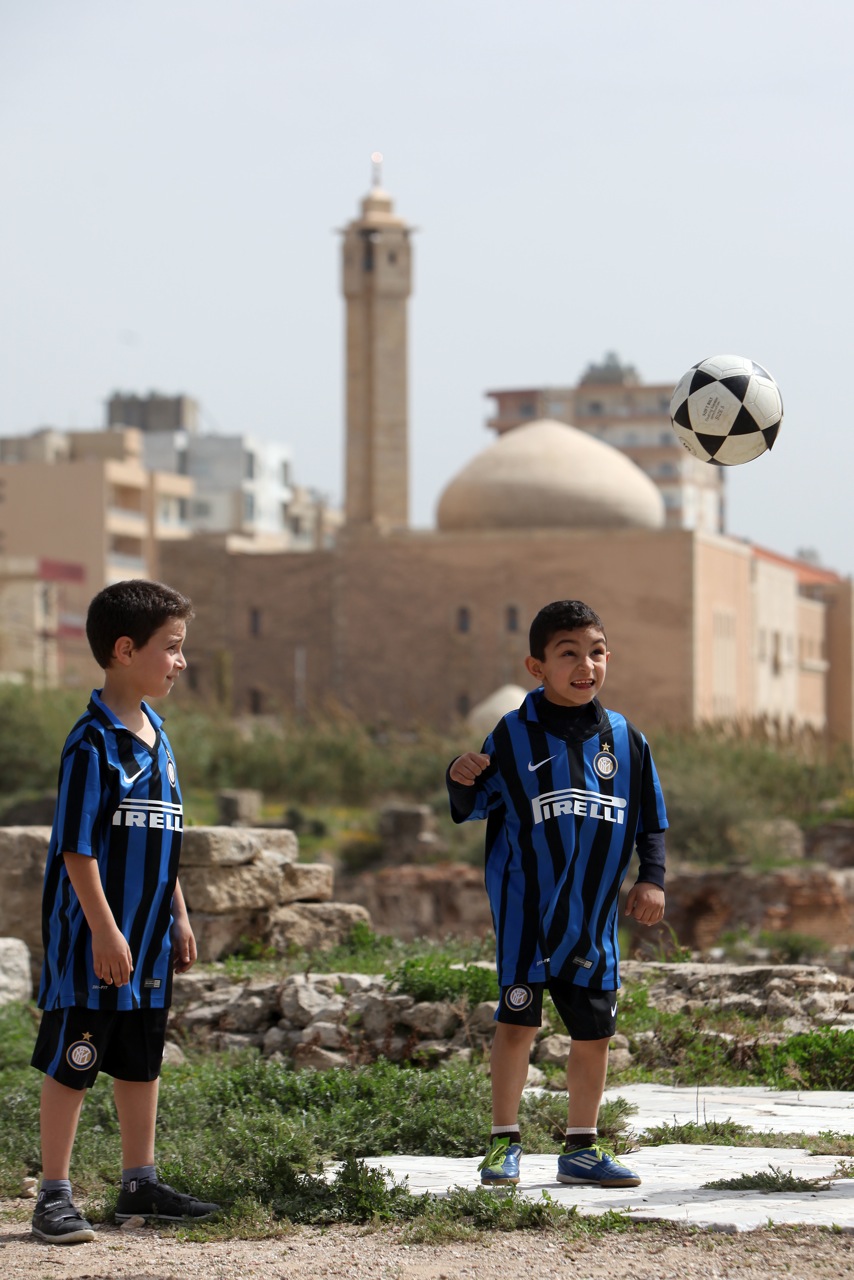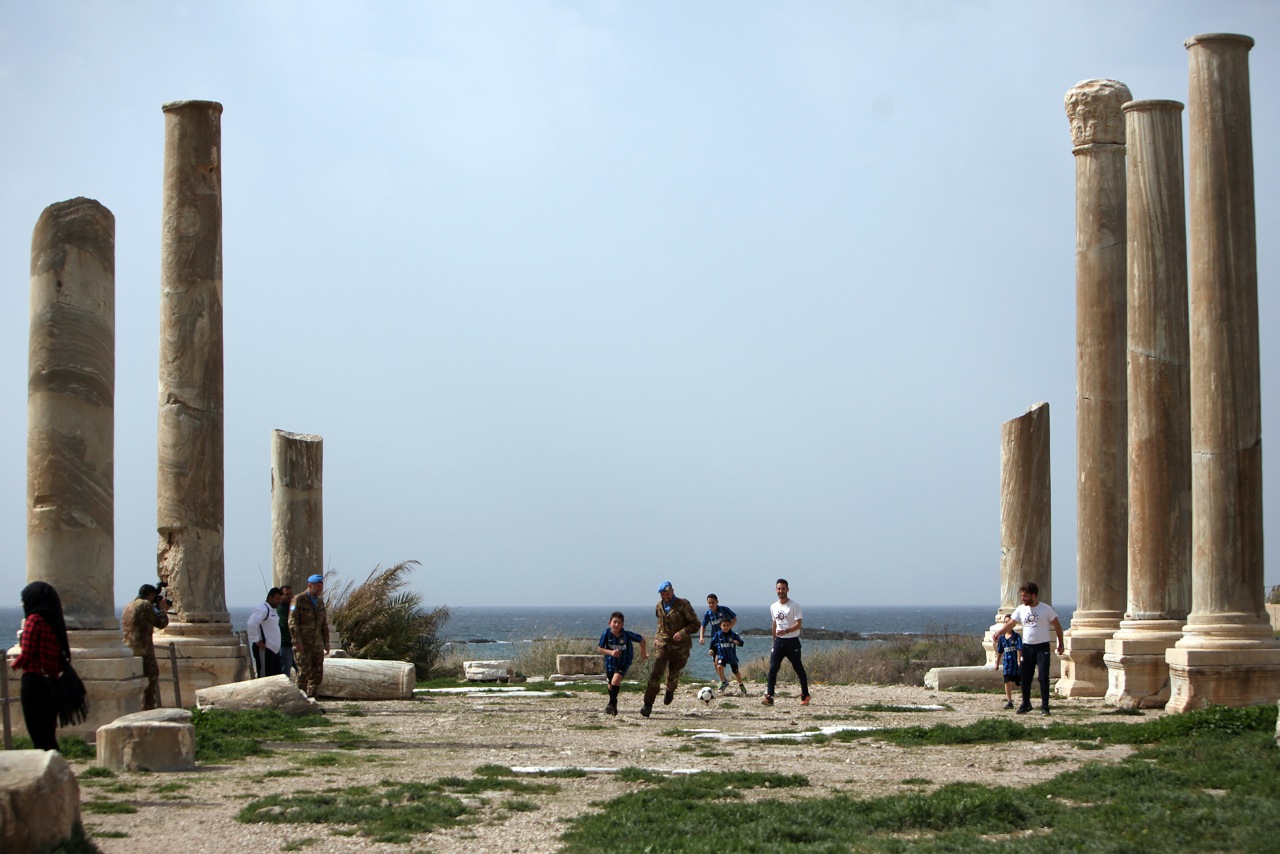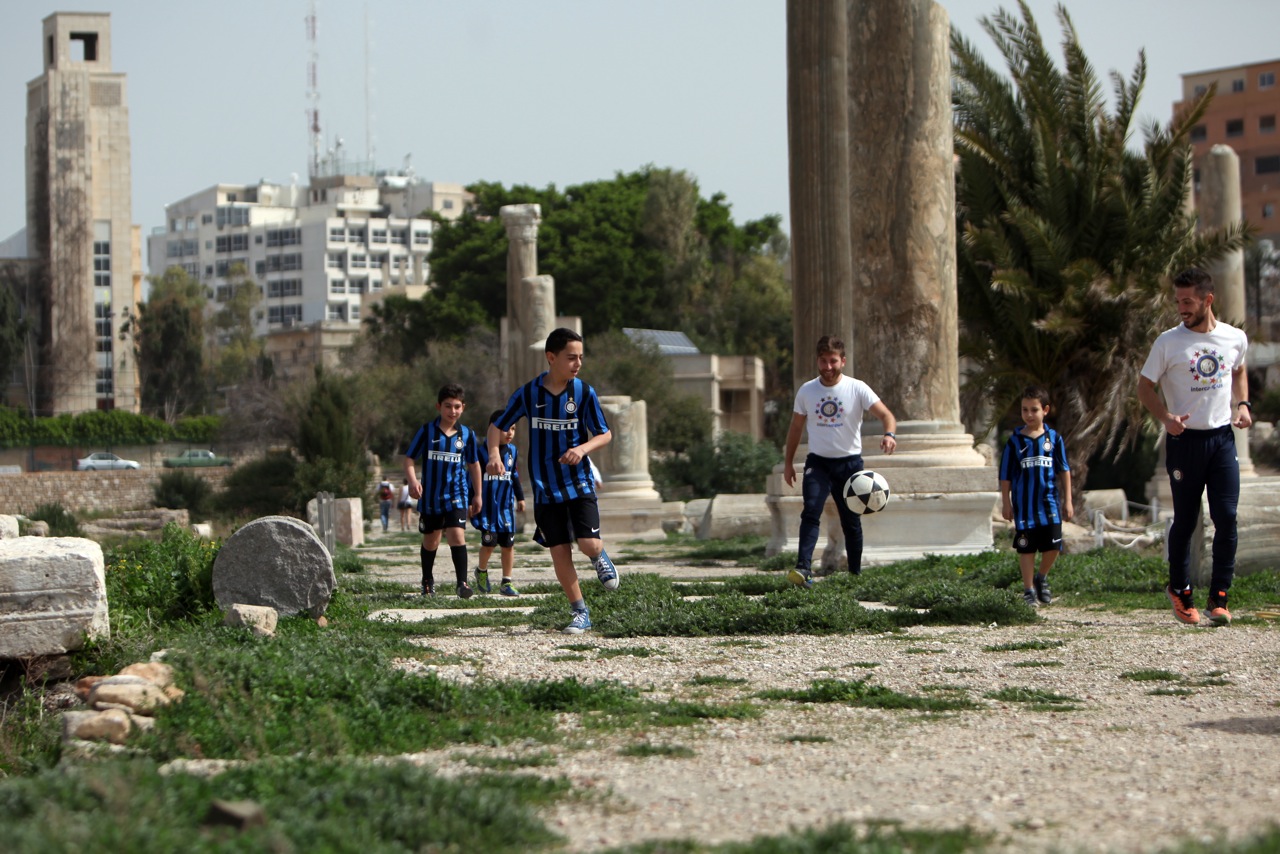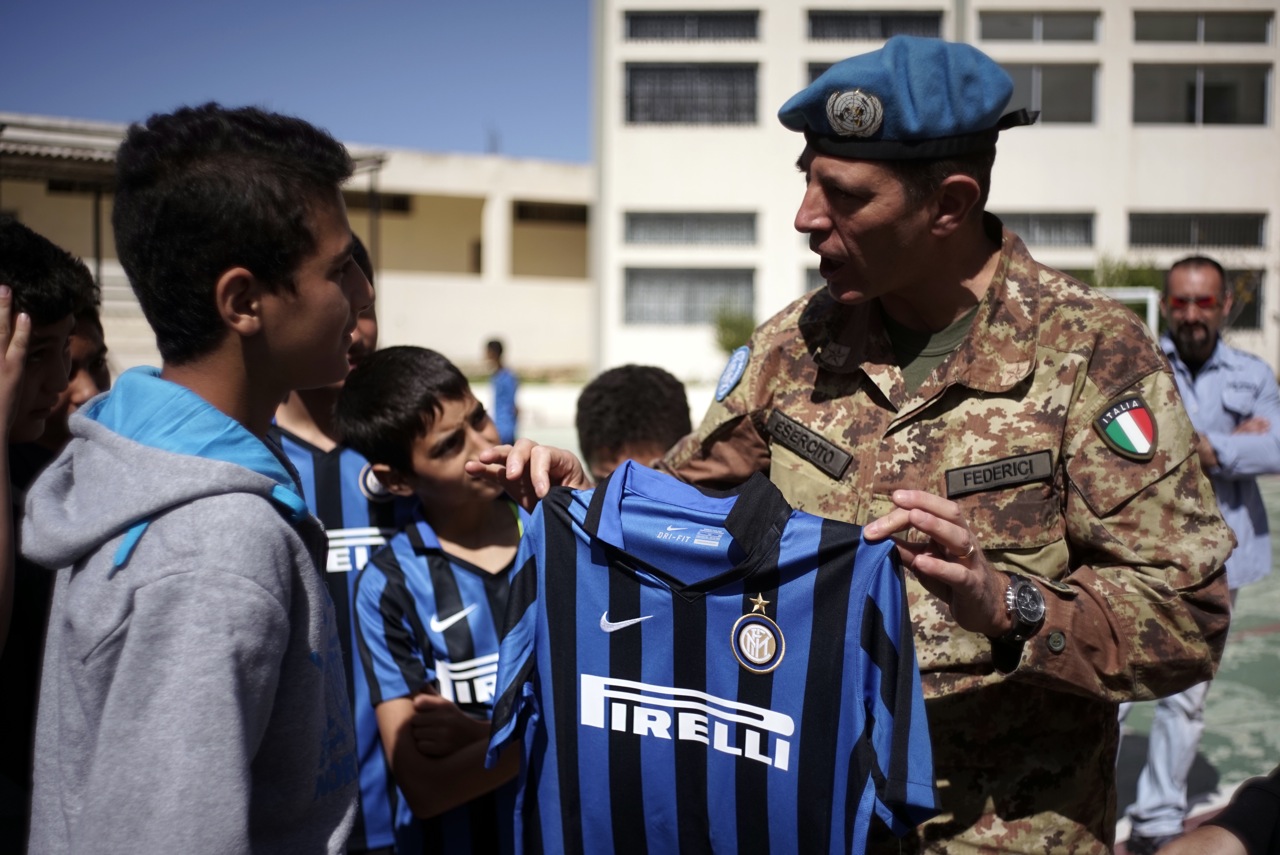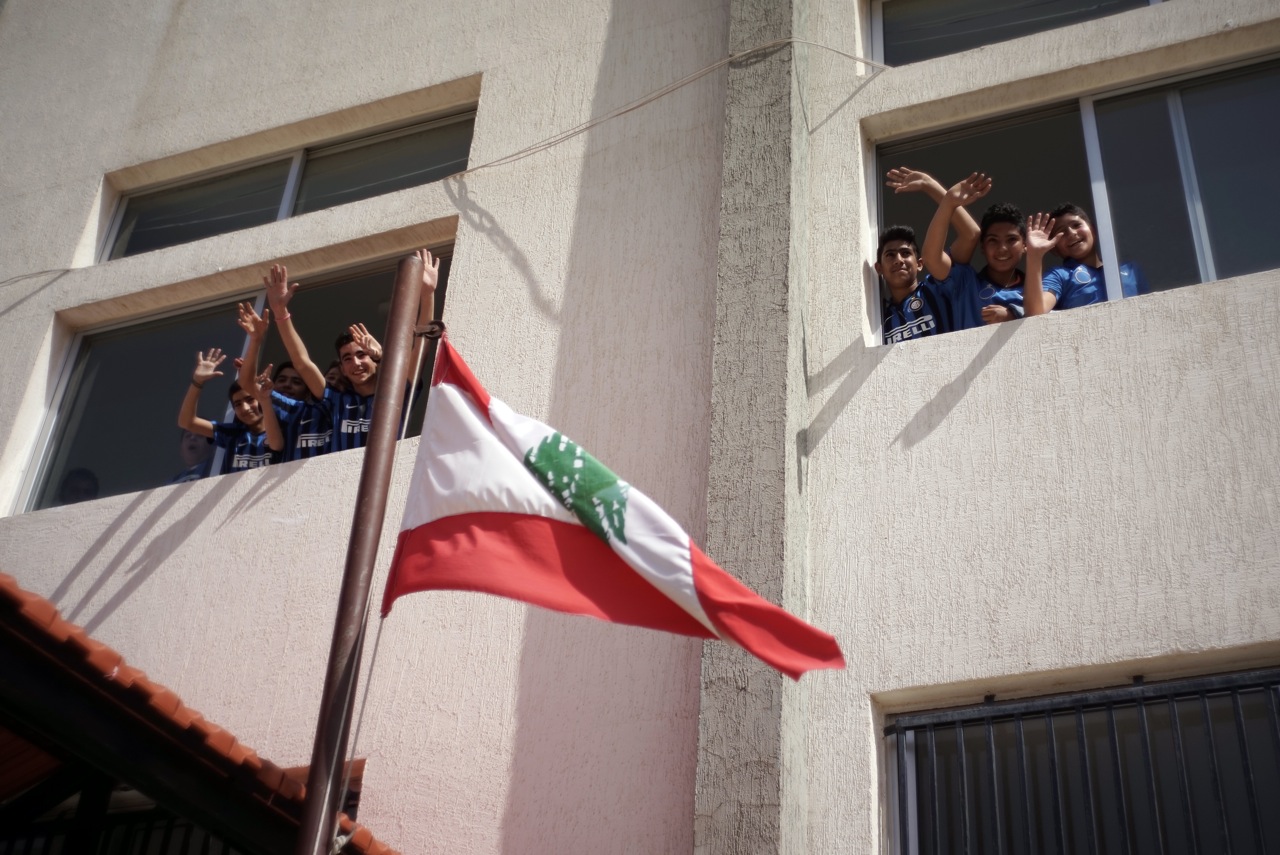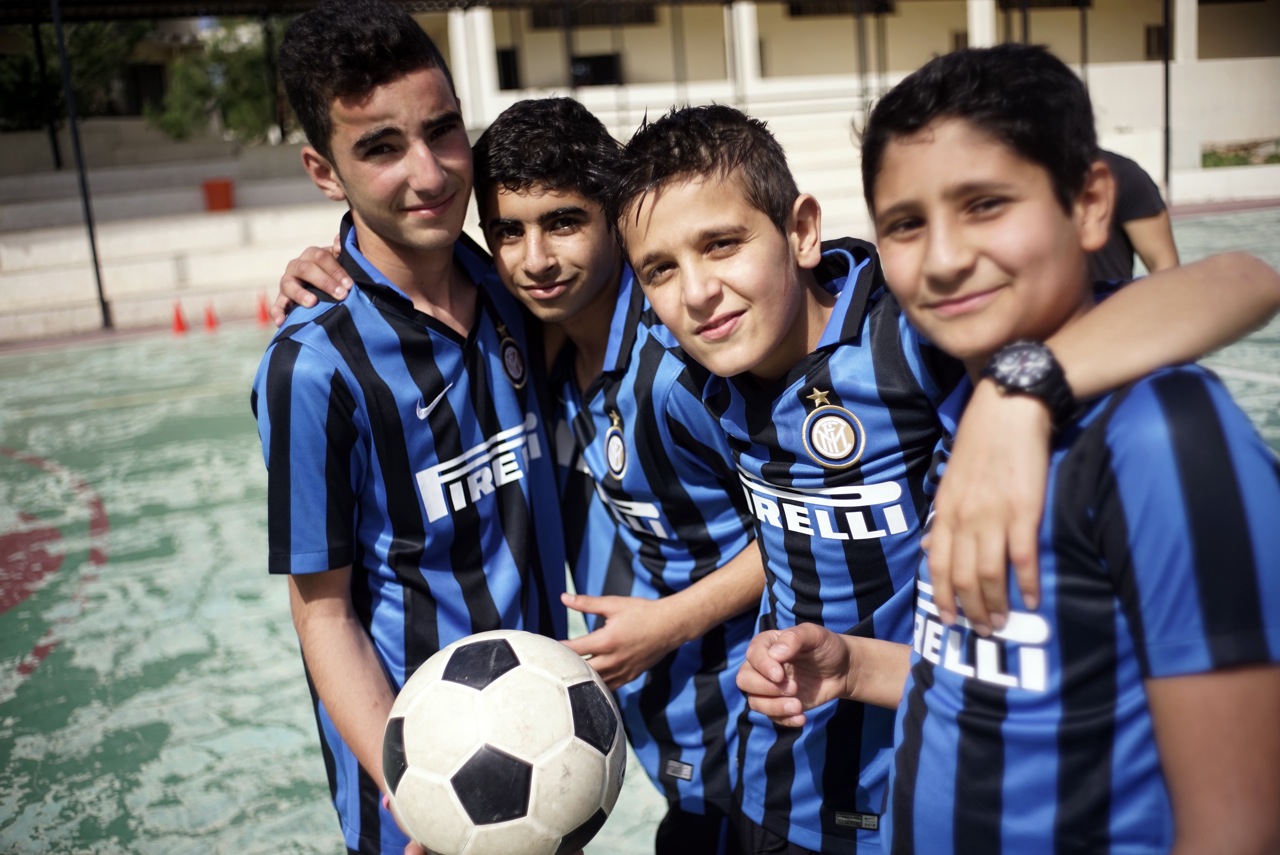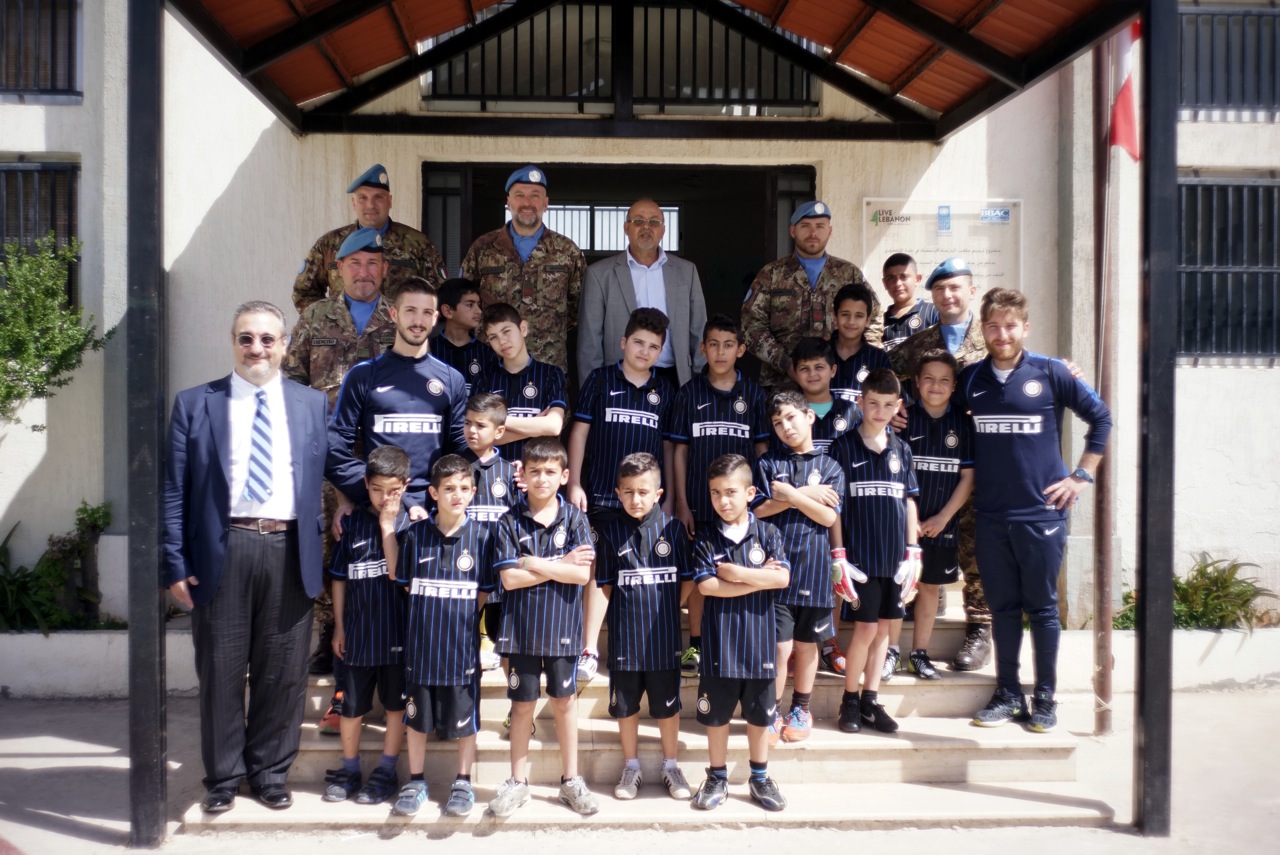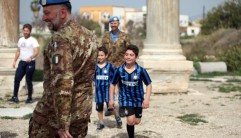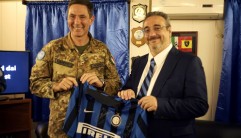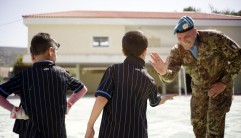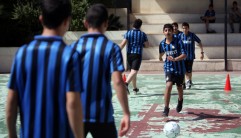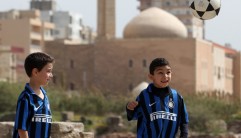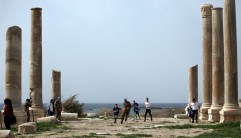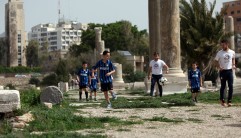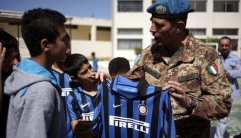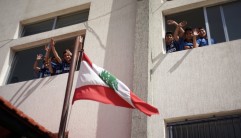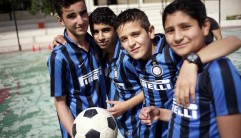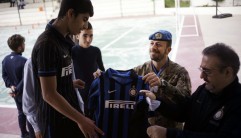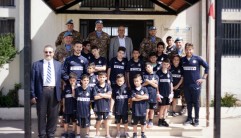BEIT CHAMA – The first thing you notice about Lebanon is the colours. They serve as a reminder that once, before the war, tourists used to come here from all over the world.
The blue of the sky and the sea as spring rolls around. The brilliant red and white of the brand-new Lebanon flag that the children of the El Mansouri school rush to hoist up a pole in place of its faded predecessor as soon as they see we have a camera with us.
It’s indicative of these children’s pride at being Lebanese, despite the thousands of different political and religious groups that comprise the country and – sadly – often lead to tensions.
The colours of Lebanon are joined by the black and blue of Inter: we hand out the Nerazzurri shirts and shorts and the kids run off happily to train on the school pitch under the watchful gaze of our instructors, Davide and Juri.
Completing this assault of colour are the camouflage uniforms of the United Nations Interim Force in Lebanon (UNIFIL) soldiers accompanying us. They do a wonderfully professional job but, in the end, not even they can resist merely watching on from the sidelines and instead join in to kick a few balls about with the kids.
We are staying in Beit Chama, in the south of Lebanon, on the UN base overseen by General Federici. We spend most of our time with the Multinational Civil-military Co-operation Group, which is run in this area of Lebanon by Lt Col Nebiolo and Major Samarelli.
It is a region that has been affected on multiple occasions by war with Israel, leaving the citizens with nothing but devastation and grief. The area has also been crippled by inter-religious confrontations and – most recently – peacefully invaded by hundreds of thousands of refugees fleeing war in Syria. Incredibly, there are now nearly one million refugees in a country of three million inhabitants.
Inter Campus’ educational and sporting activities stand side by side with the work the soldiers do to help the civilian population (healthcare, construction, schooling, cultural activities, economic incentives, support for women). We are currently working with around 50 children from the El Mansouri village school.
Our work in the community of Hannawiyah has proved more difficult, with our local instructor leaving the programme. We will soon find a replacement in order to continue the project in this village too.
It is certainly a unique experience for us to lead our training sessions half blinded by helmets and weighed down by bullet-proof jackets, but this is the reality of the south of Lebanon. We are just a few minutes’ drive from the Israeli border in one direction and the war in Syria in the other. Of course, we soon get used to it, thanks in no small part to our friends at the Beit Chama base, who do everything and anything to make us feel at home.
In the future, we hope to involve other communities in the area, some of which are accommodating large numbers of refugees. However, given the unpredictability of the Middle East at the moment, we limit ourselves to simply introducing the project to some local head teachers, all of whom are as hospitable and friendly as the next.
15.03.2016




![[Inter Campus returns to Lebanon]](https://intercampus.inter.it/wp-content/uploads/2016/03/InterCampus_Libano_2016-110_giga-1.jpg)
